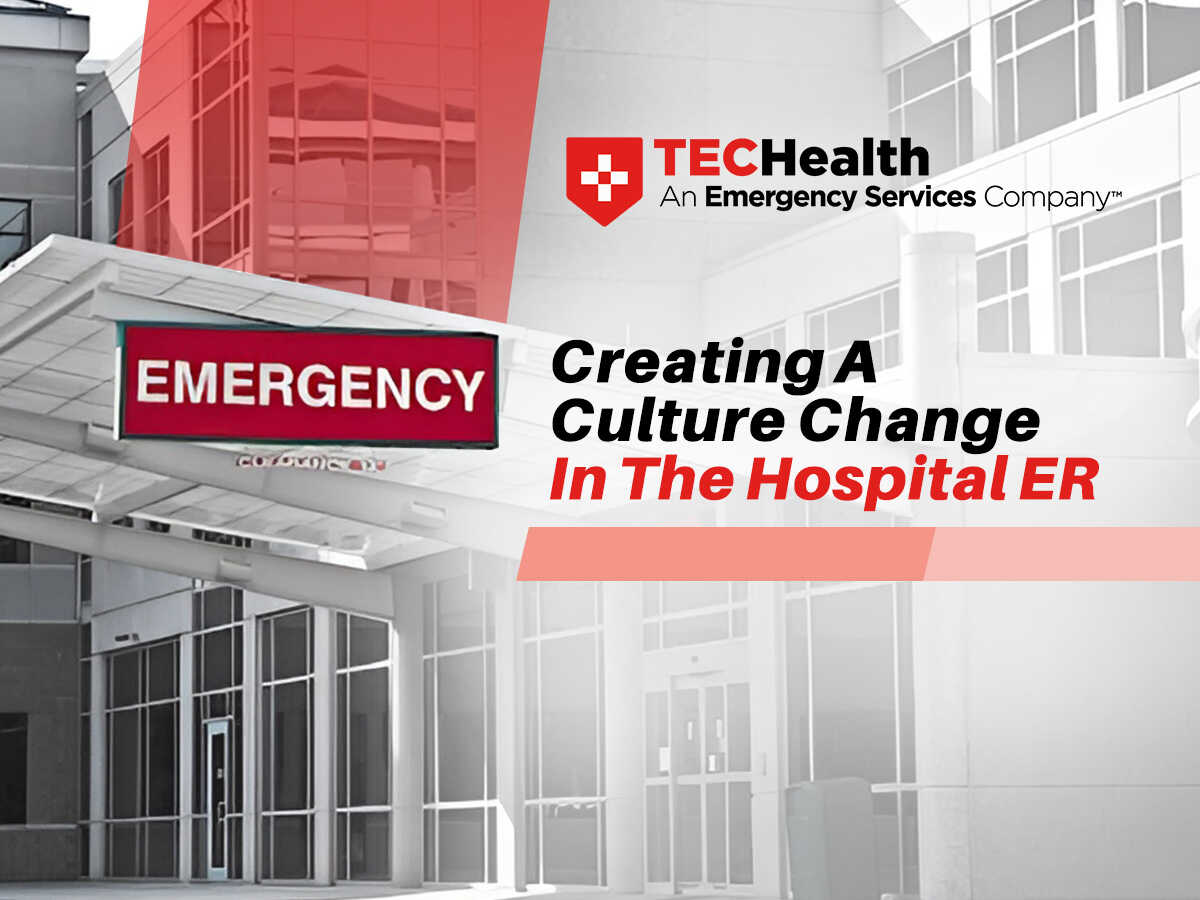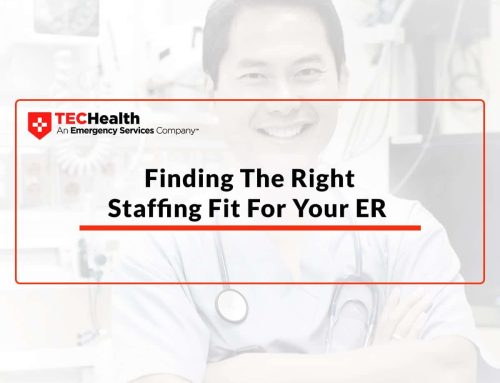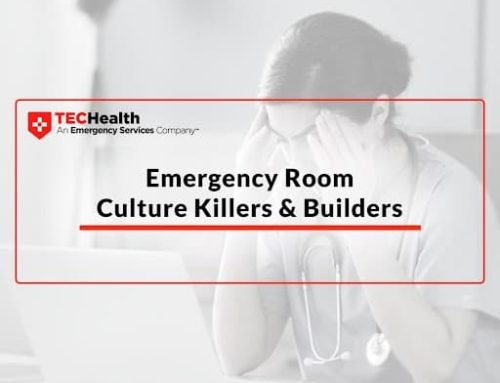
By Keith Butler, MD, MBA, FACEP, CEP, Chief Executive Officer
All organizations have a culture. Organizational culture is a system of shared assumptions, values, and beliefs that helps individuals understand which behaviors are and are not appropriate within an organization. It is the environment within which employees flourish or fail.
When we founded TECHealth, we spent a lot of time thinking about the cultures that have shaped our careers. What did we like? What didn’t we like? Which ones truly influenced the way we practiced emergency medicine and cared for our patients? Honestly, for most of our careers, we thought of care values, the building blocks of culture, as fluff that was done because the MBA courses said you had to. But, as we studied successful businesses and organizations, we began to understand the highly successful ones relied on a set of core principles they worked hard to make a part of their DNA. It was an active process, not just a placard on the wall.
Most of us want to live by something we believe in and can aspire to. But it needs to be a simple, clear message that can be easily explained and embraced. So, we spent a lot of time and thought on what we wanted TECHealth’s guiding principles to be. Since opening our first freestanding ER, we’ve been actively working on making these values part of the organization. Here’s what we came up with:
- Do something good
- Accountability
- Empathy
- Zeal
These Core Values inform our business decisions, from how we treat our patients to whom we choose as our business associates. Our hiring and evaluation decisions are also guided by this philosophy which has created a strong company culture.
As we began to serve our patients and our communities, our approach was validated through patient and employee satisfaction surveys. Not only were patients highly satisfied with their care they also reported being highly satisfied with their overall experience while in our facilities. Supporting the positive patient experience was the staff experience who reported being highly satisfied with their work environment, their co-workers, and the level of care they were able to provide to our patients. They also reported being highly engaged with the organization’s mission and core values.
While we felt good about our culture, we recognized the challenges ahead of us when we engaged with hospital partners to manage and staff their ERs. How could we take our cultural approach and success and bring it to an ER with already established culture, one shaped by the parent hospital organization?
Typically, when a hospital engages with us for staffing, it is because of the actual or perceived failings of the previous emergency medicine group. Most of the physicians in that group were smart, hardworking, accomplished professionals who wanted to succeed. Experience has shown us the failure was rooted in not managing the culture of the ER. Changing a culture, especially a toxic one, is no easy task. We knew to be successful, we had to be consistent and committed to our core values. People in the hospital needed to know we were serious about living the values and hold others accountable to them. To make the culture change more permanent, we had to embed a process that was rigorously enforced.
Legacy ER staff who “survived” the toxic environment were naturally skeptical at first. But being clear and consistent about our goals and communicating frequently proved to be the glue that cemented their commitment to the ER, to their patients, to each other, and to the success of the organization. We’re gratified that the word is spreading among health care systems and hospitals about our new and highly successful approach to emergency medicine. Many are reaching out to us to learn more and to partner with us for their future.
Our greatest success is our focus on our core values, culture, and mission. This focus is something that must be done constantly and deliberately. When all is said and done, the benefits are endless for our patients, our staff, our hospital partners, and the communities we serve.
About the author: Keith Butler, M.D., MBA, FACEP, CEP, is TECHealth’s CEO. He earned his medical degree from the University of Arizona Medical School and completed a four-year Emergency Medicine residency at Maricopa Medical Center in Phoenix, Arizona. He also has an MBA in Healthcare Management. After completing residency, Dr. Butler was instrumental in the formation and management of several Emergency Department organizations, including TECHealth, An Emergency Services Company. Dr. Butler has an extensive IT background across multiple industries and is a Six Sigma Green Belt with process redesign experience. He is board certified in Emergency Medicine by the American Board of Emergency Medicine.




